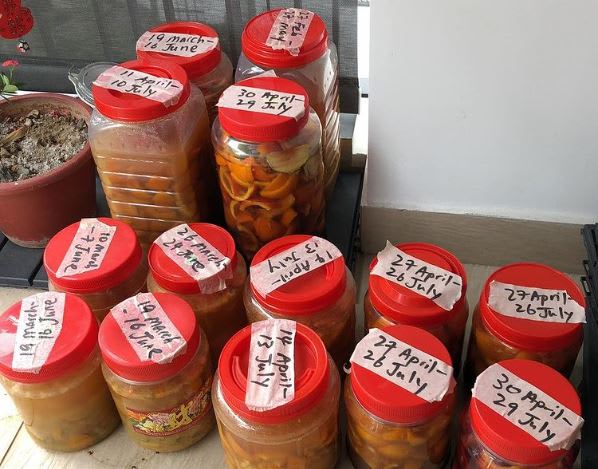The Big Read in short: From boomers to zoomers, are generational gaps exaggerated?
SINGAPORE — When Diana, 31, became pregnant six years ago, her parents had insisted that she marry her then-boyfriend, who had proposed, and kept the baby.

A recent poll found that at least one in two non-youths describe the younger generation as “carefree, idealistic and selfish” while at least three in five youths view the older generation as “conservative, stubborn and hardworking”.
This article was written in partnership with the National Youth Council. Join us in our Instagram Live webinar on 12pm, Wednesday (June 1) on the topic of bridging the intergenerational divide.
Each week, TODAY’s long-running Big Read series delves into the trends and issues that matter. This week, we examine the divide between the different generations and what can be done to bridge the gap. This is a shortened version of the full feature, which can be found here.
- Labels such as "baby boomers", "millennials" and "Gen Zs" have not only become identifiers for different cohorts, but also become synonymous with negative behaviours or mindsets
- Such generalisations and stereotypes not only divide generations but create differences where there are often none, say experts
- This is because they lump millions of unique individuals into designated groups and put a label on them
- A recent poll by the National Youth Council found that the different generations have unflattering views of one another but it also found, among other things, that a majority in the different generations see value in the other
- TODAY's interviews with individuals from different cohorts also found that while there is a clear generational difference in viewpoints, there is, in some instances, common ground and an acknowledgement that there is much to learn from the different perspectives
SINGAPORE — When Diana, 31, became pregnant six years ago, her parents had insisted that she marry her then-boyfriend, who had proposed, and keep the baby.
But instead, she declined the proposal and had an abortion.
Speaking to TODAY, the account strategist, who declined to give her full name, said she did not want to get married or have children. And since then, her parents have yet to let the matter rest and have over the years, called her “selfish” for doing so.
Like Diana, marketing executive Chong Xiu Yi, 26, has also been labelled as self-centred by her father, who is in his 60s and works in banking.
Ms Chong said her father, who came from a working-class background, believes that her generation enjoys a lot of privileges due to Singapore’s economic growth and rising educational standards, and therefore does not understand the value of hard work.
These conflicts — stemming from what seem to be generational differences — feel insurmountable for the pair whom TODAY spoke to, and have resulted in rifts within their families. And they are not alone in facing what appears to be a generational divide.
Over the years, researchers and popular media have coined terms to describe different demographic cohorts: The generation born during the post–World War II baby boom from 1946 to 1964 are widely known as "baby boomers", or "boomers" for short.
Those born between 1965 and 1980 are called "Generation X", while those between 1981 and 1996 are "Generation Y" or "millennials". The latest generation to have come of working age is "Generation Z" or "zoomers", defined as those born between 1997 and 2012.
Whenever intergenerational animosity surfaces, barbs such as "boomers are out of touch", "millennials are entitled" and "Gen Zs are softies" are often traded between the young and the old.
These sweeping remarks not only divide generations but create differences where there are often none, said experts interviewed, because they lump millions of unique individuals together and put a label on them.
Such labels then become an identifier for people born in different years.
“It is far better to understand generational change broadly as a process that is shaped by shared historical context, without trying to place labels and stereotypes through the use of arbitrary selected ranges of birth years.Asst Prof Shannon Ang, a sociologist at the Nanyang Technological University”
Sociologist Shannon Ang of the Nanyang Technological University (NTU) said these generalisations are, for the most part, problematic.
The assistant professor said: “It is far better to understand generational change broadly as a process that is shaped by shared historical context, without trying to place labels and stereotypes through the use of arbitrary selected ranges of birth years.”
A recent poll by the National Youth Council (NYC) found that about one in two respondents feel that intergenerational differences are an issue here, with higher agreement seen among youths.
But these conflicts are not as serious or as pressing as other social issues, said respondents, though two in five agree that they could affect workplace relationships between colleagues and hinder common goals for Singapore’s progress.
The NYC Youth Sentiment Poll on Intergenerational Relations surveyed 700 Singaporeans earlier this month, comprising 500 respondents aged between 16 and 34, and 200 older respondents aged 35 and above.
The poll also unveiled perceptions that each generation holds towards each other.
At least one in two non-youths describe the younger generation as “carefree, idealistic and entitled” while at least three in five youths view the older generation as “conservative, stubborn and hardworking”.
Four in five youths also feel that the older generations are too fixed in their ways and traditions, while one in two non-youths feel that the younger generations are less resilient and have a short attention span.

Yet despite their perceptions of one another, the survey found that a majority in both groups see value in the other, particularly in bringing fresh perspectives — the older generation with their life experiences, and the younger generation with their creativity.
Such sentiments are also reflected in TODAY’s interviews with over 20 individuals across the different generations. And while there is a clear generational difference in viewpoints — particularly on attitudes toward LGBTQ (lesbian, gay, bisexual, transgender, queer) issues, environmental conservation, individualism versus collectivism, as well as marriage and parenthood — there is, in some instances, common ground beneath the surface and an acknowledgement that there is much to learn from the different perspectives.
-
LGBTQ ISSUES
With the global push for awareness of LGBTQ issues intensifying in recent years, especially across social media, it comes as no surprise that overall acceptance of LGBTQ persons is high among youths.
This was also among the findings of the inaugural TODAY Youth Survey released last year, which polled 1,066 respondents between the ages of 18 and 35.
In 2019, a door-to-door survey conducted by CNA, which involved over 1,200 respondents from different age groups, saw a divide between the groups on how they view LGBTQ issues.
When asked if they agreed, disagreed or were neutral to not exposing their child to LGBTQ influences, 69.8 per cent of baby boomers agreed. In contrast, only 39.6 per cent of millennials agreed.
Similarly, when the respondents were asked if they would have positive or negative emotions if their child were LGBTQ, 61.5 per cent of boomers indicated “negative” compared with 37.5 per cent of millennials.
Speaking to TODAY for this report, older individuals attributed the generational differences to the norms on gender and sexuality that have been passed down from the generations before them and enforced in their families and communities.
One of them is Mrs Michele Ng, 54, who initially had trouble accepting that her daughter is in a same-sex relationship.
The homemaker, who also works as a part-time cat-sitter, said there was also a lot of pressure from the elders in her family to “raise her daughter the right way”, meaning her daughter should have a stable job, get married to a “good” man, and have children.

Aside from family pressures, the older generations talked about growing up at a time when there was a stigma around illnesses that were linked to the LGBTQ community such as human immunodeficiency virus (HIV), which can lead to the acquired immunodeficiency syndrome (Aids) if left untreated.
Madam Rahimah Rahim, 63, recalled that back in the kampung days, those who had same-sex relations would be beaten up. But it was only when she started working as a nurse over four decades ago that she found out that the illnesses was not confined to the LGBTQ community.
The retiree added: “I don’t think you can say the older generation don’t accept LGBTQ people… Honestly, I think religion has more to do with it than age.”
-
ENVIRONMENTAL CONSERVATION
A common refrain during discussions on environmental conservation is that young people want to save the planet while the older ones downplay the issue.
But the NYC poll found otherwise: Both youths and non-youths deem environment and sustainability among the top five areas that require more attention in the next year. The other common priority areas are the cost of living, mental well-being, jobs and the economy.
NTU’s Asst Prof Ang noted that most Singaporeans across generations acknowledge that something needs to be done to protect the environment but where the perceived generation gap may lie is the extent to which economic growth must be sacrificed to accommodate mitigation measures.
“Over time, I showed (my mother) how the eco-enzymes can be used and we learnt about the benefits that eco-enzymes have that we both care about.Ms Pamela Low, 26, whose mother initially disapproved of her making eco-enzymes at home”
This was experienced by Ms Pamela Low, 26, whose mother initially disapproved of her making eco-enzymes at home because it took up space and she could not understand the benefits of such an endeavour.
Ms Low, a regional business launcher at a tech firm, ferments fruit and vegetable scraps into cleaning agents that can be used for dishwashing and general household cleaning.
“Over time, I showed (my mother) how the eco-enzymes can be used and we learnt about the benefits that eco-enzymes have that we both care about — exposing ourselves to less chemicals, which is better for our skin and saving cost,” she said.
Ms Low’s mother eventually saw how their common values of resourcefulness and thriftiness aligned through the activity.

Mr Joven Chiew, 50, founder of Facebook group Singapore Hikers, said when it comes to caring for the environment, the habit of recycling is already ingrained in the older generation, most of whom like to reuse and resell things.
In comparison, youths do them more deliberately such as through participating in beach clean-ups or trash picking initiatives.
Another difference which Mr Chiew noted among the different generations is how they perceive nature and what it means to be a nature lover.
“When the older generation say they’re nature lovers, what they mean is they love being part of nature, they love doing things like picking up fruits in the jungle, climbing trees, swimming in the stream – all the things they did back in the kampung days," said Mr Chiew.
“But the younger generation is less interested in such activities. They are more interested in looking out for wildlife, studying plants, and looking at how conservation can impact biodiversity."
-
INDIVIDUALISM VS COLLECTIVISM
The younger generation is often criticised for being individualistic, placing their own needs and desires over group or societal goals.
On the other hand, the older generation is often deemed to be collectivists – having a higher sense of loyalty to their group and feeling obligated to dedicate success to the collective effort.
But not all agree with such stereotypes.
Mr Raymond Fung, a 58-year-old retiree, believes that the value of collectivism is universal in this country and does not change from generation to generation.
“I think whatever age you are, you want to see progress for Singapore,” he said.
Mr Fung felt that the misperception could be due to the fact that the younger generation are no longer willing to stick to having traditionally linear career paths as compared to their older counterparts, and are more motivated by their own purpose than a paycheck — making them seem self-centred.
He pointed out that as compared to the competitive workplace today, there were abundant employment opportunities when he first joined the workforce decades ago, as Singapore was in the early stages of industrialisation then.
“The conventional path is to work for someone and get a 9-to-5 job. People also find security in getting employed and staying with a company, be it for loyalty or survival,” said the former mechanical engineer. “I took that route, and my experience has somewhat been successful. That’s why I am inclined towards that path because it has worked for me.”
But Mr Fung said that when his daughter, Rae, expressed interest to work freelance and start her own business after she graduated from university, it dawned on him that the aspirations of youths today have changed.
Ms Rae Fung, 25, who is working as a speaking coach, acknowledged that she had the privilege of growing up in an environment where she need not worry about food on the table or having a roof over her head — and was thus able to pursue her passion.
She added that youths today also benefit from the “privilege of perspective” because they have more access and exposure to more information. They can also network more easily with people with like-minded interests and open their minds to greater possibilities.

- MARRIAGE & PARENTHOOD
The traditional family nucleus has evolved so much over the last few decades that children are no longer raised primarily in a single-income household with a male breadwinner.
This, in turn, has led to changing views about the importance of marriage and parenthood, with youths less likely to put as much importance on them as their parents or even older cohorts.
Take the case of Diana, the account strategist whose relationship with her parents soured after she refused to get married and had an abortion.
Diana said she did so because she does not want to get married or have children, primarily because she feels that she will not be able to afford a good life for a child and she also prefers living by herself.
“When I got pregnant, I told myself I’m not going to get married to someone just because I have a baby with him,” she said.
For Ms Therese Goh, her cohabitation with her boyfriend also caused a rift with her mother.
The 22-year-old undergraduate recently moved in with her boyfriend of three years, to “test their compatibility”.
“We see it as a trial… it gives us a better picture of how life will look like when we get married,” she said.
Ms Goh said her mother was against the idea as she thought it would “erode the sanctity of marriage”.
“She has the mindset that there should be a wedding before a couple moves into their matrimonial home. But I’m of the view that I want to know exactly what I signed up for,” she said.
WHAT EXPERTS SAY
In describing the collective attributes of a generation, it is important to not exaggerate the differences, said experts interviewed.
Asst Prof Ang from NTU said one factor that unnecessarily widens the generational gap is the uncritical use of generational labels and their associated stereotypes.
"Thinking of birth cohorts as monolithic and reducible to a few often-negative attributes often exaggerates differences and leads to further polarisation, exemplified by terms such as ‘strawberry generation’ and ‘ok boomer’," he said.
Dr Mathew Mathews, a principal research fellow at the Institute of Policy Studies (IPS), acknowledged that the difference between generations is certainly real but there are many areas where aspirations are similar.
Pointing to results from the World Values Survey conducted by the IPS and released last year, Dr Mathews said the difference in opinion between generations here is actually “fairly small”.
“For instance, there are many priorities that all of us, regardless of age group, tend to embrace — we all have similar views about the importance of the family and the need to respect our elders,” he said.
Agreeing, Asst Prof Ang said on climate change, for instance, Singaporeans across generations recognise it as a real problem that needs to be addressed, rather than it being a hoax or a conspiracy.
And on LGBTQ issues, most across the generations will probably agree that LGBTQ individuals should not be discriminated against.
“These are important commonalities that we should not downplay, especially in a society where different generations have come of age in vastly different environments,” he added.

HOW TO BRIDGE THE GAP
- Instead of stereotyping each generation, focus on the commonalities.
- Create opportunities to allow meaningful cross-generational interactions – whether in school, the workplace or at home, and also beyond these spaces.
- Integrating more adult learners into university classrooms, for instance, can provide a safe space for engagement across generations, said Asst Prof Ang.
- Be curious about why people may have differing views and be respectful when addressing those views, said Ms Theresa Pong, the counselling director of The Relationship Room.
- Avoid “black or white thinking” or looking at issues in a straightforward manner, and talk about the issue when in better control emotionally, said Mr John Shepherd Lim, the chief well-being officer of Singapore Counselling Centre.
- Never sweat the small stuff. Actress Tan Kheng Hua, 59, who is usually on the same page as her 24-year-old daughter, said: “I don’t care what she wears, how she puts her makeup on or how late she stays up at night. I don’t sweat the small stuff. But we talk about the big stuff – our values in life, what’s right and what’s wrong... we talk about education and work ethics.”








